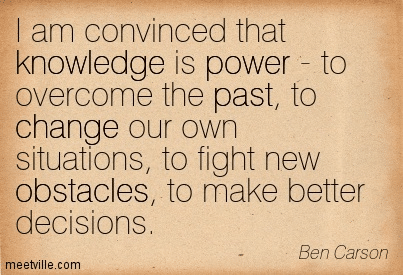No parent likes to watch their child struggle. Not in school, not in life. No adult wants to struggle with learning disabilities either. For many parents and guardians of children with learning disabilities, as well as adult sufferers, that sense of powerlessness, of being lost with no idea where to start, is nearly as crippling as ADHD, dyslexia, dysgraphia, etc.
Table of Contents
ToggleWhat is important to know before, during, and after this important step
Dr. Laury Paul is a licensed psychologist and neuropsychologist in New York City. She believes getting help with dyslexia and other learning difficulties is an excellent and necessary place to start.
After completing her internship at Mount Sinai hospital and working in other hospitals such as Bellevue Hospital Center and St. Vincent’s, Dr. Paul opened her private practice. Her philosophy is one reason why testing and assessment are so important:
“It is my philosophy that as we increase our awareness and come to a better understanding of ourselves, we become empowered.”
Regaining power, confidence, and hope is important for all involved. But at what point should one get tested? What does it even mean to “get tested”? Is it even going to help?

List of Early Signs and Symptoms of Learning Disabilities
Some early evidence of learning disabilities, such as dyslexia and dysgraphia, are hard to spot. It’s difficult to tell at young ages if the student is just acting out because they are young and impulsive or if it’s something else.
Are they inattentive because of ADHD (attention deficit hyperactivity disorder)or because they just haven’t reached the developmental stage for longer lengths of focus? Do they just need more structure? Less structure?
There are early warning indicators, however. While this list is not comprehensive, it is useful. More information and resources can be found here.
- Dyslexia
- Reversing position of letters
- Reading-writing comprehension struggles
- Delayed speech
- Auditory processing delays
- ADHD
- Unable to sit still
- Forgetful and disorganized
- Loud, disruptive, and inattentive
- Minimal to no motivation
- Emotional outbursts
- Dyscalculia
- Measuring, time, and estimating are difficult concepts
- Word problems in math are extraordinarily difficult
- Cannot grasp the order of operations
- Grouping and counting numbers is a challenge
- Dysgraphia
- Messy to illegible handwriting
- Excessively long to write simple sentences and words
- Improper writing utensil grasp
- Written expressions are unclear and difficult
- Poor grammar

Are you seeing some of these? If so, it may be time to schedule an assessment and testing. And no, assessment and testing for learning disabilities are not the same things.
Below is a partial interview with Dr. Paul. She gives her professional advice on why testing and assessment are important.
Q: Do you think assessment/testing for learning disabilities is still stigmatized? Would you say some parents/guardians refuse testing or are hesitant for testing because of this?
Dr. Paul: I think the stigma has greatly decreased over the last five years. Now the tide has turned in the other direction where parents and schools have a better understanding that the testing process is not meant to label a child but to help teachers and school staff understand the child’s individual differences and how best to approach learning.
Q: Many benefits of testing are obvious (awareness, ways to cope/mitigate, interventions), but what are some other ways testing helps that may not be as evident?
Dr. Paul: Testing is able to identify a pattern of efficient learning. For example, I can tell a student this is the way your brain likes to learn new information (e.g., flashcards) or this way is completely non-efficient for studying.
At the end of the process, it is not just about being aware of what are strengths and challenges but also how to work to use them to use your strengths when you are in a situation (e.g., studying for a test) or to overcome the challenges when you have free time.
Q: If you could give some advice to novice learning disability people (sometimes they are already adults and just learning they have a disability), what would it be?
Dr. Paul: To not interpret a learning challenge as a lack of ability to learn. People teach how they best learn and you learn how your brain best learns and sometimes an external bridge needs to be built to manage that intake of information.
Ready to take the plunge? Here is a brief overview of the process in public schools. Dyslexia evaluation, as well as other learning disabilities evaluations, vary somewhat in different states; however, keep in mind, the Individuals with Disabilities Education Act (IDEA) makes it mandatory for schools to provide individualized instruction and help for any student with a disability. There are experts within each school district to assist with the testing process, where to get tested, and with setting up a student’s Individual Education Plan, or IEP.
- Parents, teachers, and/or the student’s physician make a referral for the student to be tested.
- Evaluations begin. There are different elements, and different diagnostic tools, to this step: psychological evaluations, teacher interviews, classroom observations, and maybe speech or occupational therapy evaluations if needed.
- Eligibility determination. Does the student have a disability and are they eligible for special education services?
- IEP meetings to make sure all areas of need are being addressed.
- IEP implementation: help has arrived!
Path to Success

Dr. Ben Carson, a retired neurosurgeon, said it best. There are many roads to success, but learning disability testing and assessment are good places to start. The information gathered from testing helps parents, students, and education officials, as well as adults with disabilities and their employers and family members finally put a name to the frustrations that come when living with unknown and uncontrolled learning disabilities.
Do you suspect that you or a loved one has a learning disability? If so, LD Resources Foundation is here to help. Check out our resources on how to thrive with a learning disability.
Get the knowledge, gain power, fight, battles and change the future.
Did you enjoy the article? Please consider joining our newsletter or making a small donation so we can continue helping those suffering from LD who are in need. Thank you.


